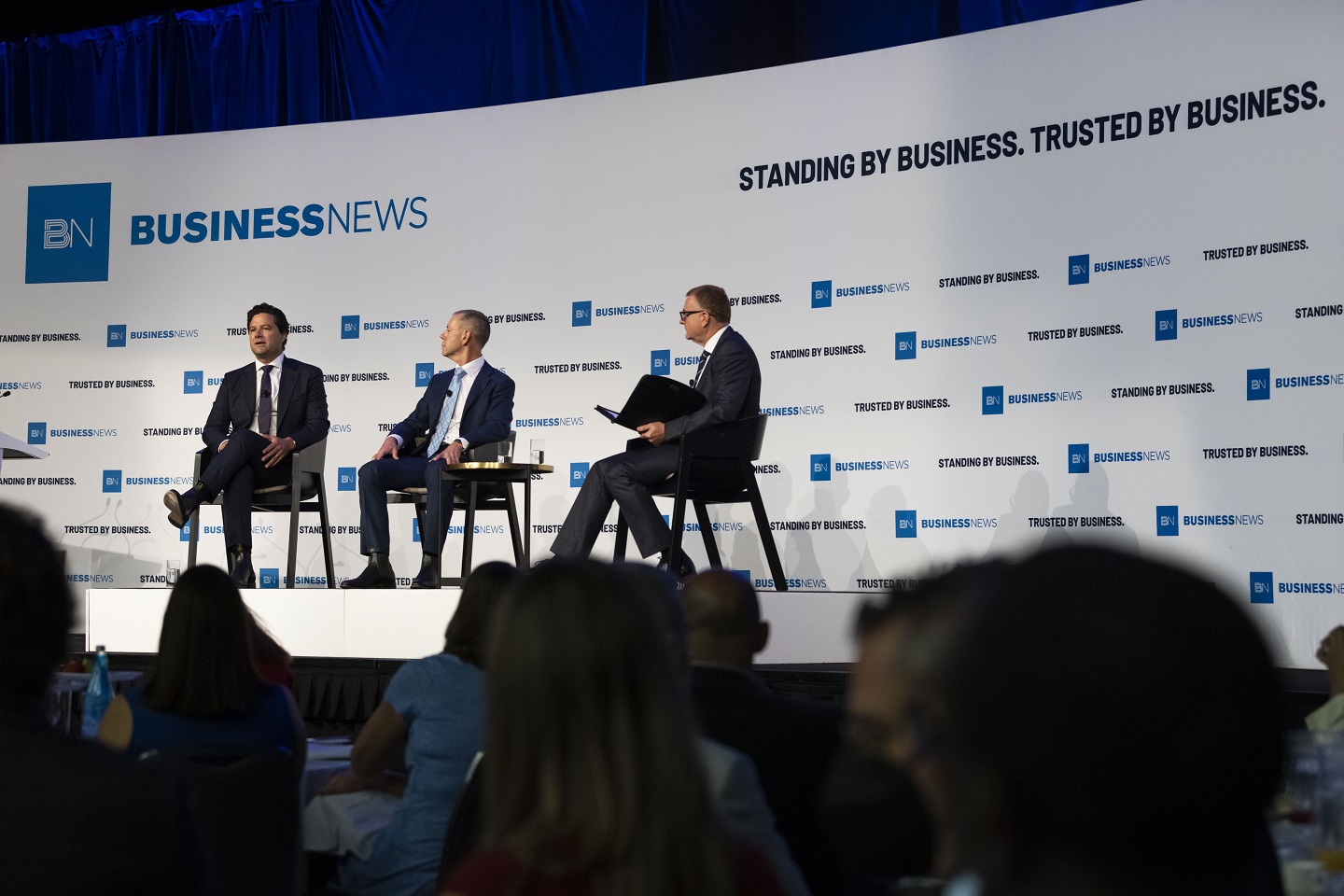Harvest Road Group will take a leading role in the cattle industry reaching carbon neutrality by 2030, its chief executive Paul Slaughter says.


Harvest Road Group will take a leading role in the cattle industry reaching carbon neutrality by 2030, its chief executive Paul Slaughter says.
The comments were made at a Business News Success and Leadership breakfast this morning.
Mr Slaughter appeared beside fellow agribusiness leader, CBH Group chief executive Ben Macnamara.
The pair highlighted the increased focus on the environmental and social impacts of their businesses.
Mr Slaughter said Harvest Road wanted to lead the way in ensuring the sector became carbon neutral.
“We see ourselves taking a real leadership position and investing in next levels to map our beef supply chain in Western Australia,” Mr Slaughter told the breakfast forum.
He said the business was currently mapping its own scope one and scope two emissions in conjunction with the Department of Primary Industries and Regional Development and Meat & Livestock Australia.
Mr Slaughter said the business would reach carbon neutrality well before 2030.
Some of its initiatives include using waste products from its Harvey Beef processing facility to produce a biogas that is then used in its operations.
It also invested in Future Feed, a company set up by CSRIO to create seaweed feed for cattle, which reduces the amount of methane released by the animals.
Mr Slaughter said Harvest Road was interested in developing an industry around this scientific breakthrough.
Harvest Road’s seafood business, Leeuwin Coast, has already achieved carbon neutrality, becoming one of the first aquaculture businesses to do so.
CBH Group’s Mr Macnamara said consumers had become more interested in where food came from in recent years, causing the group to increase its traceability.
“Traceability of grain and also chemical residue limits is also really important aspect,” Mr Macnamara said.
He said the group’s growers already had a lot of experience reducing the amount of chemicals used.
“The growers of Western Australia understand soil health, they understand how important that chemical management aspect is and for many years they have been working through it, whether it’s dealing with salinity issues, reducing water tables, replanting trees or whether its around managing soil health, managing weeds to ensure they can reduce their chemical application,” Mr Macnamara said.
He said the business was working towards mapping its scope one and scope two emissions but had a way to go.
A majority of CBH Group’s impact came from the energy used to transport grain by ship, Mr Macnamara added.
The group has established a biogas plant at its mill in South Australia to generate energy, making the operation self-sufficient.
“We see opportunities to do the same thing here in Western Australia in each of our four ports,” Mr Macnamara said.
Both groups highlighted the funding they provide to the regional communities they work in.
The discussion comes at CBH Group recorded its largest ever harvest, processing 21.3 million tonnes.
The record harvest delivered 50 per cent more than the five-year harvest average of 14.2mt and surpassed the previous record in 2016-17 of 16.65mt.















